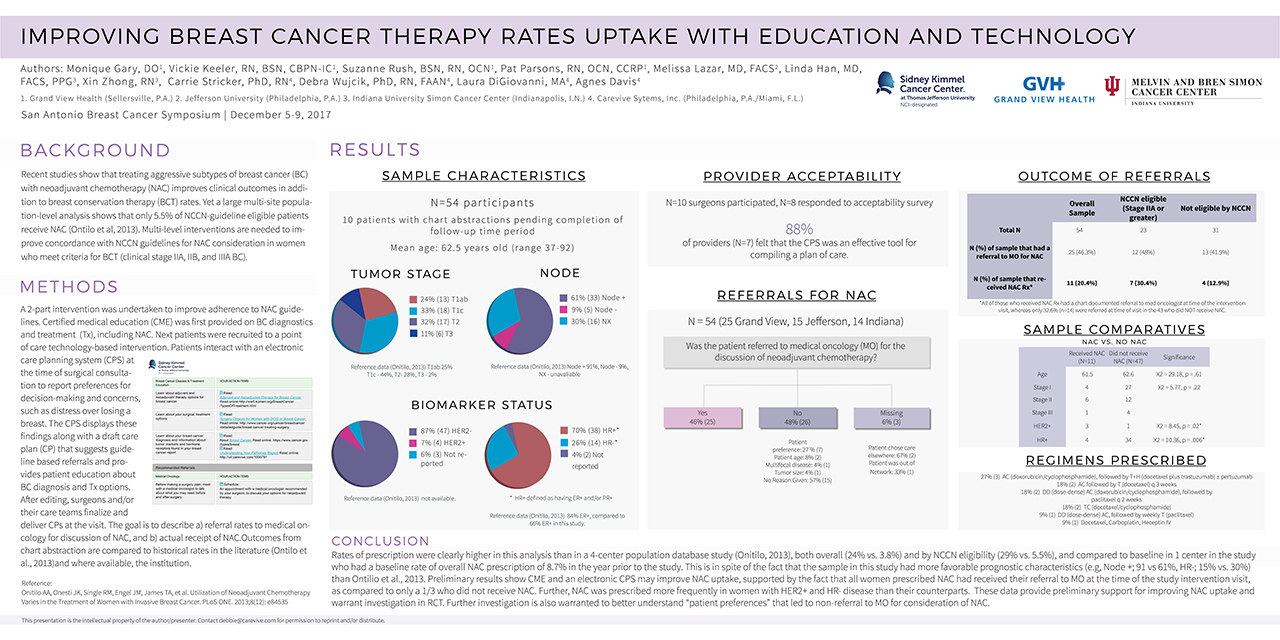

Poster presenter: Monique Gary, DO – Grand View Surgical Associates
The Carevive team along with investigators from Grandview Indiana University Hospital, and Jefferson Sidney Kimmel Cancer Center are presenting a poster at the 40thAnnual San Antonio Breast Cancer Symposium, titled “Improving Neoadjuvant Breast Cancer Therapy Rates Uptake with Education and Technology“.
A 2-part intervention was undertaken to improve adherence to neoadjuvant chemotherapy guidelines. Sixty-four women with newly diagnosed non-metastatic breast cancer were enrolled at the time of their surgical consultation. Using an electronic tablet, patients reported preferences for decision-making and concerns such as distress over losing a breast. The results were displayed to the provider during the visit along with evidence based recommendations for care. Plan to attend the poster session on December 8 between 7-9 am local time to learn from the investigators about how the intervention impacted referrals and prescriptions for neoadjuvant chemotherapy.
Poster Session 4
Friday, December 8
7:00 am – 9:00 am
Authors: Monique Gary, Vickie Keeler, Suzanne Rush, Pat Parsons, Xin Zhong, Carrie Stricker, Debra Wujcik, Laura DiGiovanni, Agnes Davis, Linda Han
About SABCS (as listed on their website)
This Symposium is designed to provide state-of-the-art information on the experimental biology, etiology, prevention, diagnosis, and therapy of breast cancer and premalignant breast disease, to an international audience of academic and private physicians and researchers.
Scientific Program
The scientific program consists of plenary lectures and mini-symposia by experts in clinical and basic research; selected slide and poster presentations chosen from the submitted abstracts; educational sessions, award lectures, panel and case discussions and forums. General sessions are approximately 2 hours in duration and are the vehicle for slide presentations, which are allotted 10 minutes each followed by 5 minutes of discussion. Poster sessions are 1 1/2 to 2 hours long.
Target Audience
This international symposium is directed primarily towards academic and private physicians and researchers involved in breast cancer in medical, surgical, gynecologic, and radiation oncology, as well as other appropriate health care professionals.




